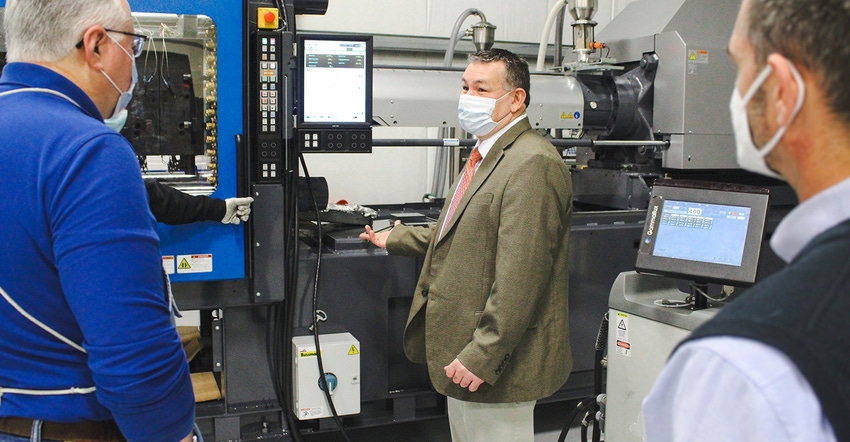The new machine’s capabilities will accommodate upcoming medical manufacturing projects that require large parts and high cavitation.
February 2, 2022

To assist its medical customers with refining their molding processes for that demanding industry, Westminster Tool has added a new Sumitomo (SHI) Demag machine that complements its existing mold qualification equipment.
The 354-ton Sumitomo 354T SE-EV-A-HD joins Westminster’s 110T and 150T presses at its mold qualification technology center in Sterling, CT. The choice was logical for Westminster, given that many of its customers also own Sumitomo machines. It is also an ideal match for Westminster’s larger presses and the materials it handles.
The new machine’s capabilities will accommodate upcoming medical manufacturing projects that require large parts and high cavitation. It features Sumitomo’s Zero Molding technology, which stabilizes molding at a lower clamp force with the goal of consistent, error-free production.
Westminster focuses exclusively on multicavity Class 101 molds for complex jobs that run for hundreds of thousands of cycles. Being able to train Westminster’s molding technicians on a machine that matches those of its customers is a significant advantage, explained Hannah Coombs, Brand and Marketing Manager at Westminster Tool. The ability to handle the diversity of materials encountered in medical applications is another critical facet.
“In terms of cavitation and shot size, this size press is a game changer for us,” Coombs explained. “This gives us a major advantage to test molds with larger parts, which is huge for medical parts like disposables that not only require a lot of plastic but have super complex manufacturing requirements.”
Of further significance, she continued, is the fact that “a lot of mold makers in our industry, especially ones of our size, don’t have the ability to run presses for some mold qualification and testing. A lot of times they’ll send it out to other plastics processors, or they have a vendor who will perform mold qualifying for them. Sometimes they’re shipping the mold as-is to the customer for their own plastics processors to do testing once the mold is finished.”
Westminster began bolstering its mold qualification process about five years ago, she said. “We started looking to do our own mold qualification in-house as a differentiator from our competitors so we could better test our own molds to the standards of our customers. This saves customers a ton of time testing the mold themselves before putting it into production.”
Notably, she added, Westminster has “a much longer DFM [design for manufacture] process at the front end before any metal cutting takes place. A lot of our design processes are value-add services. This takes a lot longer on the front end — but if we can run all of this testing, such as mold flow simulation, and perform this design and engineering work, it saves us time [when] we get to qualifying the mold in our presses.”
About the Author(s)
You May Also Like


